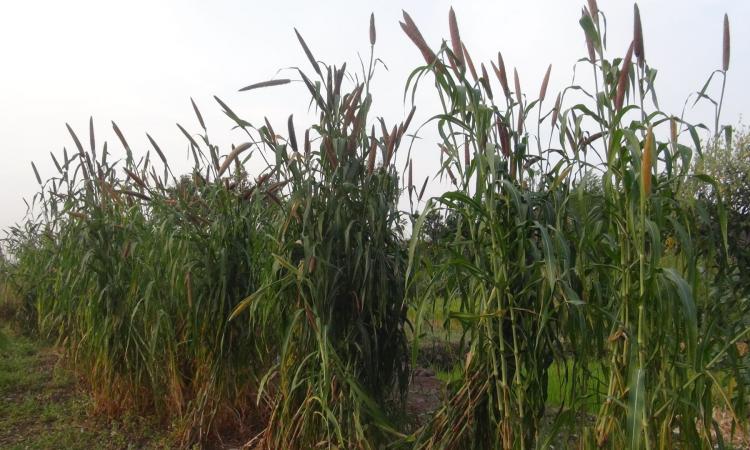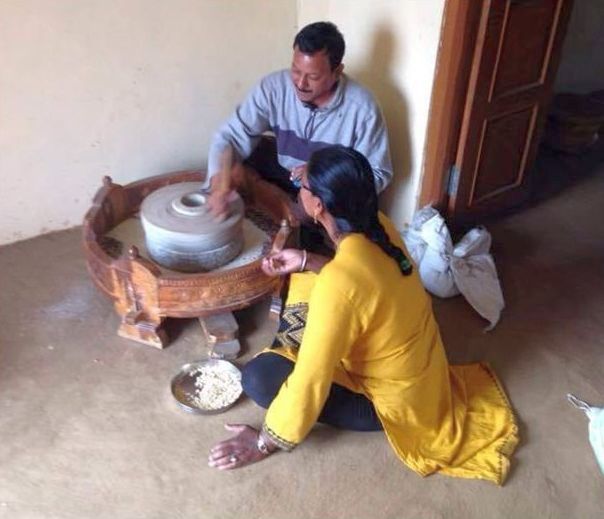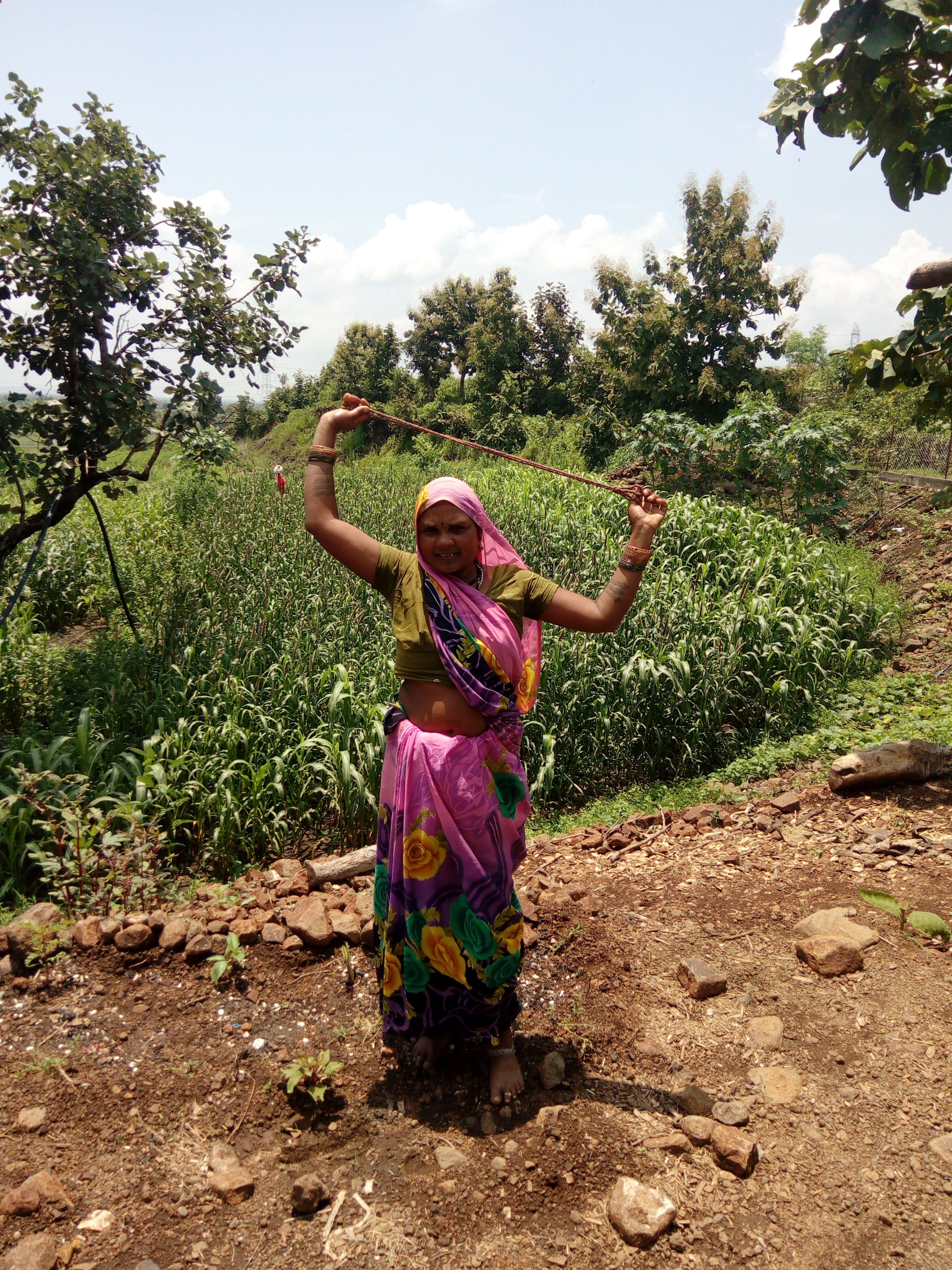
Pandutalav, a small quiet village nestled in the dry teak forests in the tribal pocket in Dewas boasts an authentic rural way of life. This little dot on the map is known for its attempts to introduce indigenous varieties of crops, in particular pearl millet these days. Mahila Jagat Lihaaz Samiti (Majlis), a Dalit and Adivasi women’s collective in western Madhya Pradesh is working on a sustainable agriculture programme here.
The region witnessed the adoption of modern agriculture in the last two decades, which deepened the area’s water scarcity. Most of the water needed for irrigation here is from groundwater extraction. This led to "water mining" wherein water collected in the deep confined aquifers over hundreds of thousands of years was used up within a mere decade.
In this region, there has been a reduction in acreage cultivating coarser cereals and pulses, which have been replaced by soyabean. This stress on monocultures has drastically reduced the area’s agricultural biodiversity. “The answer to the crisis lies in sustainable internal input agriculture. This is more energy, water and nutrient efficient and results in lower greenhouse gas emissions than modern external input agriculture per unit of crop produced,” says Subhadra Khaperde, founder of Majlis.
The sustainable agriculture programme
“The Bhil tribals in the area traditionally use very little external inputs and are organic farmers by default. They just need some direction to become conscious sustainable agriculturists, natural resource conservationists and renewable energy producers,” says Rahul Banerjee, who set up Majlis with Subhadra Khaperde.
Majlis’s efforts have been institutionalised with the setting up of a climate change mitigation centre in Pandutalav village. “This sustainable agriculture system is labour intensive and respectful of nature, and so it is integrated with social and environmental well-being on a larger scale in a holistic manner. This will create an “economy of permanence” as outlined by the Gandhian environmental economist Kumarappa,” says Khaperde.
Promoting local cereals

Pearl millet or bajra as it is called locally, is a very nutritious cereal that was once grown widely by the Bhil Adivasis in western Madhya Pradesh during the monsoons. However, over time it has been replaced by corn in most areas except some of the more remote parts of Barwani and Alirajpur districts. Even in these districts, the traditional varieties have vanished and hybrid varieties are being grown.
Majlis’s programme on sustainable agriculture saw a major success this year when it was able to revive the cultivation of pearl millets in Pandutalav. Bajra ripens early, so, the farms were swamped by birds and the locals had a hard time saving the crop. Eventually, they managed to harvest a little and on winnowing, it yielded about 40 kilograms.
To deal with this, Majlis procured an indigenous bajra seed grown by Bharia Adivasis in Patalkot area of Chindwara district, which had long whiskers that prevented the birds from eating it. “The state of affairs as far as preservation of our indigenous seed heritage is concerned is poor. After searching for so many months and finally undertaking a long journey, we could lay our hands on just half a cob of the dry land pearl,” says Banerjee.
The seeds were sown in Pandutalav and did very well. Thanks to proper sowing and tending of the plants, they grew to more than 3 meters in height and tillered very well. Each plant had many cobs, as big as half a meter or more in length. The seeds have been kept on the cobs and are going to be sold to farmers before the next kharif season for sowing. In this way, a very important indigenous cereal has been preserved and will now be propagated among the adivasis in the area to help them improve nutrition.

“A few NGOs have expressed interest in Majlis's efforts to revive traditional indigenous agriculture. They liked the traditional Bhil Adivasi cuisine prepared using indigenous cereals and pulses grown organically on the farm at the centre. Other than pearl millet, there are several other seeds that Majlis is trying to revive such as chikni jowar, a vanishing strain of sorghum,” says Khaperde. Majlis plans to supply organic cereals, pulses and adivasi preparations to NGOs that provide holistic health solutions and market organic products.
Improving water efficiency
Majlis’s farm at Pandutalav has a limited supply of water from a borewell. So, it has customized rabi (winter) crop’s sowing to suit the lesser water availability. Not only have the seeds of wheat, linseed, masoor and gram been sown at one feet distance from each other, watering is also being done through a small pipe only at the roots of the plants in limited quantities. This has resulted in more tillering in the case of wheat and more robust growth in the case of other crops. Since the plants are at a distance from each other, there is space for a bicycle hoe to be driven between them to turn the soil and kill the weeds.
This is followed by weeding around the plants followed by application of a special organic fertiliser called Jeevamrit ghol. This fertiliser is prepared by fermenting a combination of cow dung, cow urine, gram flour and jaggery and then diluting it and applying it to the roots of the plants. These processes are labour intensive but they produce wholesome food with a lesser amount of water. Unfortunately, government support for this kind of agriculture is missing and farmers in general are not prepared to adopt it.
Majlis is implementing this as a pilot to promote sustainable agriculture and to tackle water scarcity, malnourishment, illness due to pesticide and chemical fertiliser infested crops, soil, water and air and climate change. Sustainable agriculture with indigenous varieties and organic farming processes is practiced on this farm, which relies on mulch from the nearby forests. These forests are being protected with communitarian fencing and regeneration efforts and composted farm residue.
/articles/return-pearl-millet